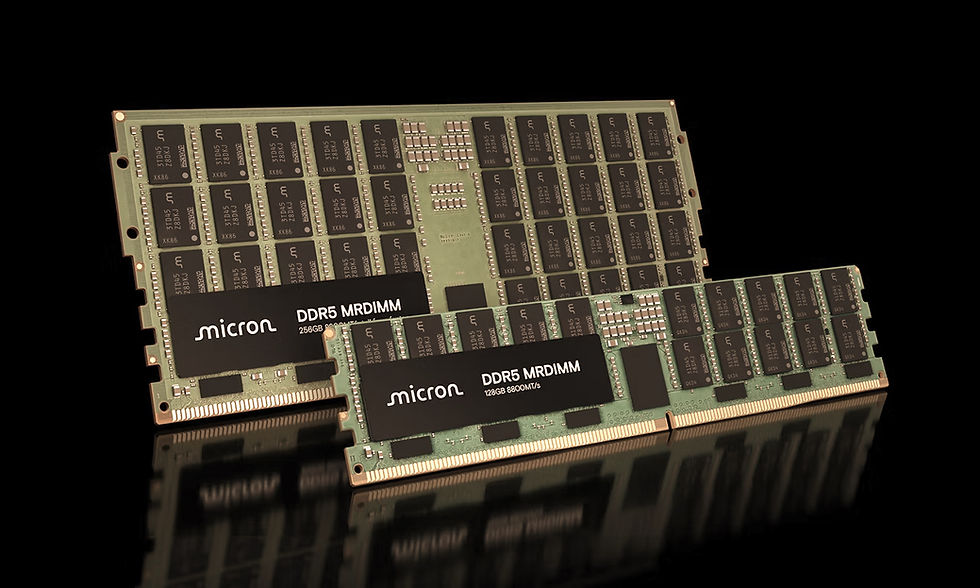AMD vs. NVIDIA: Which Chip Stock Holds the Edge for Future Growth in 2025?
- BC

- Aug 12, 2025
- 2 min read
Summary Comparison: AMD vs NVIDIA
Current Price & Forecast
AMD is trading around $172.28. Analysts' 12-month average price targets range from roughly $182 to $183, offering modest upside of ~4–6%.
NVIDIA is at about $182.06. Analyst targets average approximately $187.57, implying a smaller near-term upside (~2–3%).
Projected Growth Outlook
AMD is expected to deliver stronger growth: revenue growth of ~15.3% and EPS growth of ~31.1% annually; return on equity projected at 16.3% over three years. Wall Street predicts EPS growth of ~53% in 2025 and ~39% in 2026, potentially leading the sector.
NVIDIA is forecasted to grow earnings and revenue at ~20–21% per year, with EPS growth around 20.6% annually and return on equity over 51% in three years
Strategic Positioning & Risks
NVIDIA remains the AI chip market leader, holding 92% of discrete GPU market share and over 80% of AI model training/deployment share. It reached a $4 trillion market cap in 2025, driven by demand for AI infrastructure. Recent developments include renewed access to China’s market via export deals (H20 chips) despite a 15% revenue-sharing requirement.
AMD is making strategic gains, expanding in AI and server ecosystems, recently announcing strong Q3 revenue outlook (~$8.7B), supported by AI chips like Instinct MI350 and MI355. However, export restrictions (e.g., MI308 to China) have negatively impacted margins and investor sentiment.
Investment Outlook
Company | Near-Term Upside | Long-Term Growth Prospects | Strengths | Risks |
AMD | Moderate (~5%) | High — strong EPS growth forecasts; AI momentum | Rising AI relevance, competitive pricing, product roadmap (MI350/MI400) | Export restrictions, unclear competitiveness vs Nvidia in top-tier AI |
NVIDIA | Modest (~3%) | Solid — consistent high growth and dominant AI leadership | Market dominance, brand, scale, AI moat | High valuation, geopolitical/legislative risks, margin pressure from revenue-sharing deal |
Conclusion: For aggressive investors seeking high-growth potential, AMD may offer a more compelling opportunity—its strong EPS momentum, expanding AI presence, and relative runway could yield outsized returns if it executes well. NVIDIA, on the other hand, remains a powerhouse with unmatched scale and stability; it's arguably a safer, long-term AI infrastructure play, but offers smaller short-term upside due to its already elevated valuation.




Comments